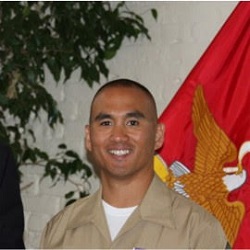

All times are in Pacific Daylight Time (UTC-0700).
The military has something called the “Rank Structure” and as a service member gets promoted they typically move away from the technical or the doing of the work and start taking on leadership and strategic roles within their respective commands and services. In a lot of traditional Military Occupational Specialty (MOS) the processes and supporting technologies do not change all that quickly, however, the IT field does not operate that way. Military members within the IT MOS field traditionally find themselves in charge and thus lack the time and opportunity to keep up-to-date with the rapid changing pace of technology and can easily find their knowledge base out-dated and struggle to lead and advocate correctly for troops and their assigned mission. Information Security as we know it, changes extremely fast. It takes a lot of effort for senior military members to maintain their skills and knowledge in order to do what’s right for their troops. Taking those senior military members who are now retiring and desire a career in infosec can be challenging due to a perceived lack of skills and hands on experience. Compounding the barriers of entry when transitioning as an active duty military member with over 20 years of time in service into civilian life is challenging. The struggle is real for a lot of military folks making that transition and this talk will highlight some of those struggles which include Post Traumatic Stress Disorder (PTSD) and provide a living example that if you want be in the infosec community that it CAN be done after 4, 8, 12, 20 or 30 years of military service.

Retired United States Marine after 21 years of service with 17 being in the Information Technology field. It was challenging yet a fulfilling career. The 17 years was a blessing having had multiple assignments which has contributed to my personal and professional growth. My last assignment provided me the opportunity...
Read More Paul Navarro
Paul Navarro
© 2021 ShellCon